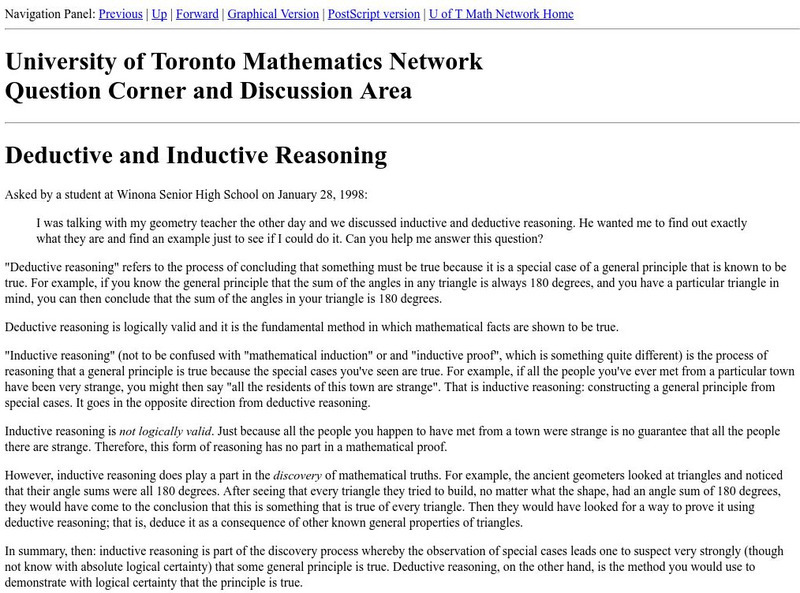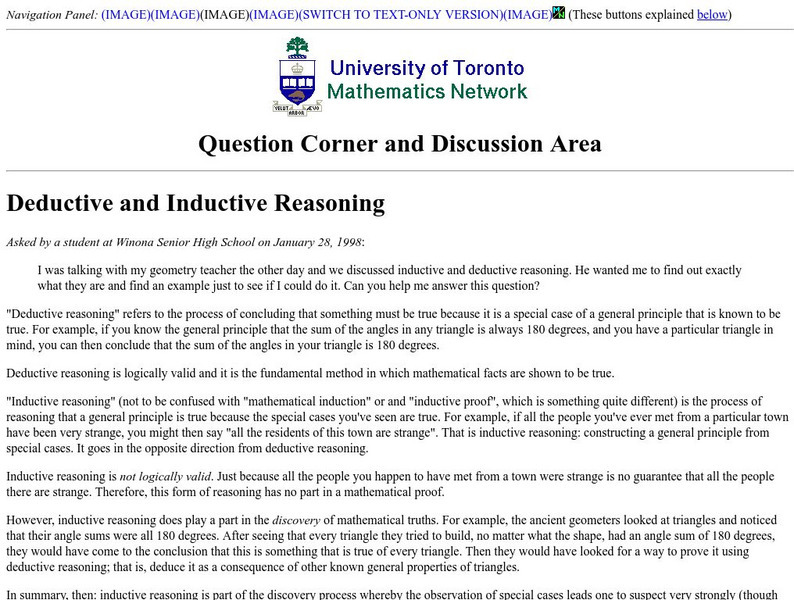Science Struck
Science Struck: Examples of Deductive Reasoning
Learn what deductive reasoning is and look at examples of how to apply it.
PBS
Pbs Learning Media: Logical Leaps: Fractions, Mixed Numbers, and Decimals on the Number Line
n this interactive, students use logic to solve three riddles involving a frog jumping contest and then place the contestants' jumps at the correct points on the number line.
University of Toronto (Canada)
University of Toronto: Deductive and Inductive Reasoning
Part of a University of Toronto website, this page defines and describes deductive and inductive reasoning in solving mathematical problems.
University of Toronto (Canada)
Question Corner: Deductive and Inductive Reasoning
A simple discussion of the differences between inductive and deductive reasoning. Helpful to anyone who is having difficulty differentiating between the two.
Khan Academy
Khan Academy: Identify an Entailment Learn More
The resource from Khan Academy provides practice questions for the LSAT. This section provides information about how to "identify an entailment that follows logically from given statements" in the "Logical Reasoning" section.
Math Aids
Math Aids: Logic Worksheets
Great resource to practice and strengthen math skills pertaining to logic. Math worksheets are printable, may be customized, and include answer keys.
Philosophy Pages
Philosophy Pages: Categorical Propositions
Introduces the method of categorical logic, as used in the deductive reasoning formalized by Aristotle. Author defines important terms very clearly and includes several good examples. A good place to start reading about logic.
Other
The Basics of Philosophy: Aristotle
A discussion of Aristotle's life and work, including his writings, his system of logical reasoning, and his contributions to different fields, such as politics, philosophy, and science.
Sophia Learning
Sophia: Supporting Details Explained
This slideshow focuses on supporting details; it discusses their purpose, the audience, and the point to be made. It lists the five most common types of supporting details: facts, statistics, opinions, examples, and personal observations...
Khan Academy
Khan Academy: Strengthen and Weaken Quick Guide
A quick guide to approaching test questions that ask you to identify info that would strengthen or weaken an argument.






